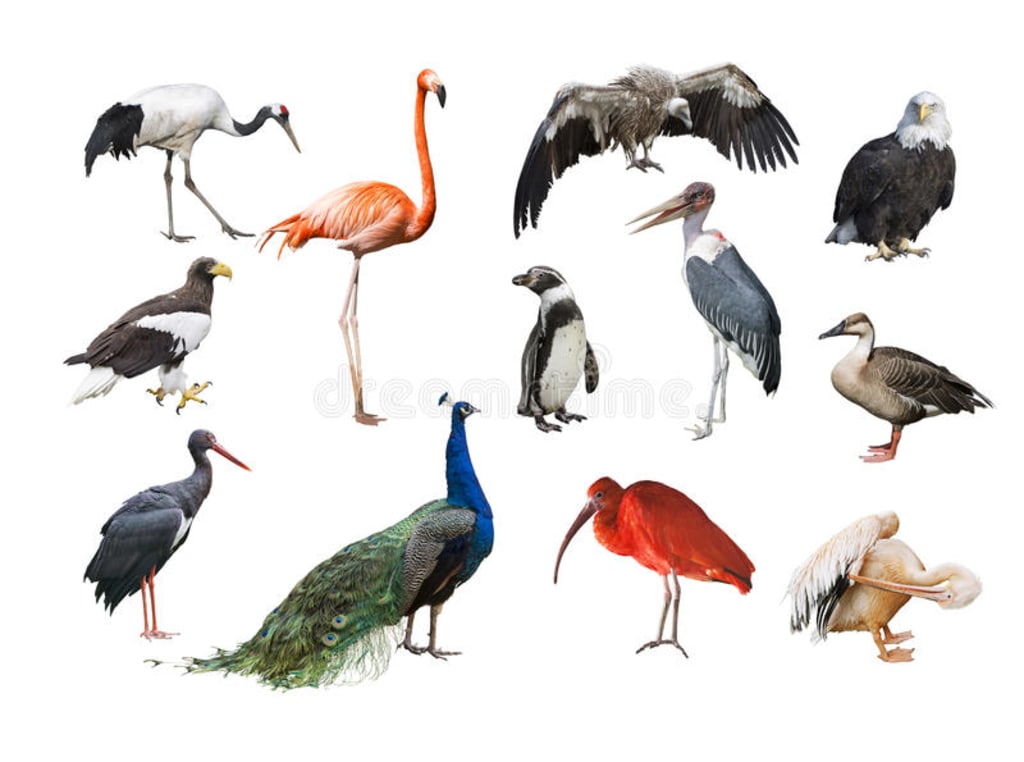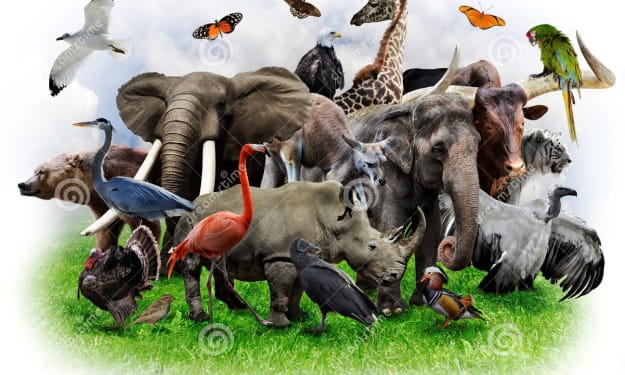Exploring the Diversity and Importance of Birds in Ecosystems
Exploring the Diversity, Adaptations, and Importance of Birds in the Ecosystem

Birds are a fascinating group of animals that have captured the attention of humans for thousands of years. They are found in almost every part of the world, from the icy waters of the Arctic to the warm, tropical rainforests of South America. In this article, we will explore the diversity of bird species, their unique adaptations, and their important role in our ecosystem.
Types of Birds:
Birds are a diverse group of animals that come in all shapes and sizes. They can be broadly classified into three groups based on their physical characteristics: flightless birds, water birds, and land birds.
Flightless Birds:
Flightless birds are a group of birds that have lost the ability to fly over time. Some examples of flightless birds include ostriches, emus, and penguins. These birds have adapted to life on the ground, with strong legs for running and swimming.
Water Birds:
Water birds are a group of birds that are adapted to life in aquatic environments. They include birds such as ducks, swans, and pelicans, which are known for their webbed feet, waterproof feathers, and the ability to swim and dive underwater.
Land Birds:
Land birds are a diverse group of birds that are adapted to life on land. They include birds such as eagles, owls, and sparrows, which have adapted to different environments and have developed unique characteristics to survive in their respective habitats.
Adaptations of Birds:
Birds have developed a variety of adaptations that allow them to thrive in their respective habitats. Some of these adaptations include:
Feathers: Feathers are one of the defining characteristics of birds. They provide insulation, aid in flight, and protect the bird's body from the elements.
Beaks: Beaks are specialized tools that birds use to gather food, defend themselves, and communicate with other birds.
Wings: Wings are the primary tool that birds use to fly. They are lightweight and strong, allowing birds to soar through the air with ease.
Hollow Bones: Many birds have hollow bones, which make them lightweight and allow them to fly more efficiently.
Migration: Many birds have developed the ability to migrate long distances to find food and breeding grounds. They use a variety of cues, including the position of the sun and the Earth's magnetic field, to navigate.
Role of Birds in the Ecosystem:
Birds play a vital role in the ecosystem. They are important pollinators, seed dispersers, and insect controllers. Many plant species rely on birds to pollinate their flowers and distribute their seeds. In addition, birds are important predators of insects, which can help to control populations of pests that damage crops and other plants.
Birds also play an important role in the food chain. They are a source of food for many predators, including other birds, mammals, and reptiles. In turn, many bird species feed on insects, small mammals, and other animals, helping to maintain the balance of the ecosystem.
Threats to Bird Populations:
Despite their importance, many bird populations are threatened by human activities such as habitat destruction, climate change, and hunting. As human populations continue to grow, the demand for land, food, and resources also increases, leading to increased pressure on natural habitats and ecosystems.
Climate change is also a major threat to bird populations. Changes in temperature and weather patterns can disrupt breeding cycles, alter migration patterns, and cause changes in the availability of food and other resources.
Conclusion:
Birds are an important part of our ecosystem and have adapted to a wide range of environments and habitats. Their unique characteristics and adaptations have allowed them to thrive in their respective environments, and they play a vital role in maintaining the balance of the ecosystem. As we continue to face challenges such as climate change and habitat destruction, it is important that we work to
About the Creator
Enjoyed the story? Support the Creator.
Subscribe for free to receive all their stories in your feed. You could also pledge your support or give them a one-off tip, letting them know you appreciate their work.





Comments
There are no comments for this story
Be the first to respond and start the conversation.